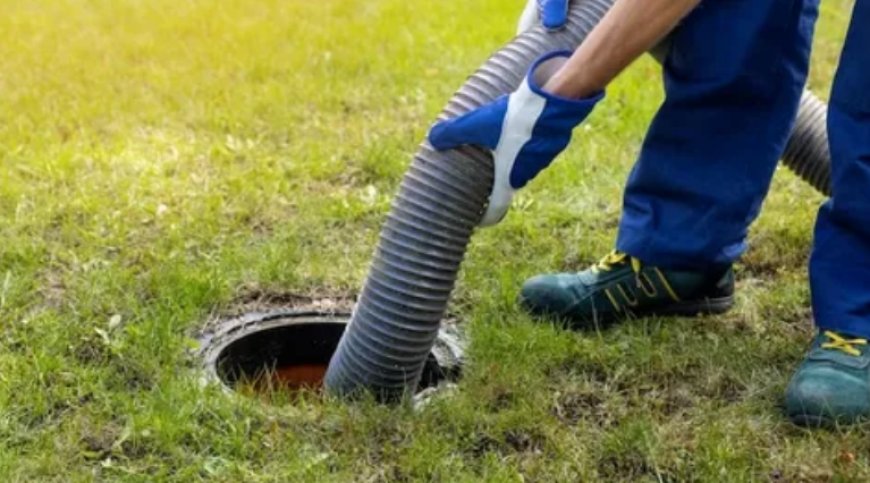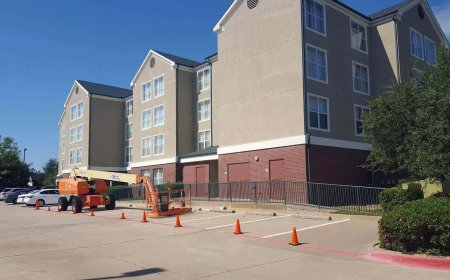What Causes Septic System Failures and How to Prevent Them
Discover the common causes of septic system failures and learn how to prevent them with expert tips from American Drainfield Septic Service! Keep your system running smoothly and avoid costly repairs.

If you own a home with a septic system, keeping it in top shape is vitalnot just for your comfort, but also to avoid unexpected (and costly) repairs. Unfortunately, many homeowners arent aware of the things that can lead to septic system failure until its too late.
In this guide, well break down what causes septic system failures, the early warning signs to watch out for, and most importantly,how you can prevent them. Whether youre a new homeowner or have had a septic tank for years, this article will give you the insights you need to keep things running smoothly.
And if youre ever in need of expert help, American Drainfield Septic Serviceis here to guide you with professional, reliable septic solutions.
Understanding How a Septic System Works
Before diving into causes and prevention, lets quickly go over how a septic system works:
A typical septic system includes a septic tank and a drainfield. Wastewater from your home flows into the septic tank, where solids settle at the bottom and grease/oil float to the top. The liquid (effluent) exits the tank into the drainfield, where it filters through the soil, removing harmful bacteria and pollutants.
When everything flows correctly, the system is low-maintenance. But when something goes wrongdue to poor usage, age, or neglectit can lead to costly damage and environmental hazards.
Top Causes of Septic System Failures
1. Lack of Regular Maintenance
The number one cause of septic failure is skipping routine maintenance. Septic systems need to be inspected every 13 years and pumped every 35 years, depending on your usage.
If solids build up in the tank and arent removed, they can clog the drainfield and cause backups in your home.
Solution: Schedule regular inspections and pumping. A company like American Drainfield Septic Service! offers affordable maintenance plans to keep your system healthy year-round.
2. Overloading the System with Water
Using too much water at once can overwhelm the tank, especially in smaller systems. This prevents solids from settling properly and can force untreated waste into the drainfield.
Common culprits include:
-
Running multiple loads of laundry in one day
-
Long showers
-
Leaky toilets or faucets
Solution: Spread out water usage throughout the week and fix leaks immediately. Consider installing water-efficient appliances to reduce strain on the system.
3. Flushing Non-Biodegradable Items
Your septic system is not a trash can. Flushing items like baby wipes, feminine hygiene products, paper towels, grease, or even "flushable" wipes can lead to serious blockages.
Solution: Only flush toilet paper and human waste. Post a reminder in bathrooms for guests or children. And always dispose of grease in the trashnot the sink!
4. Tree Root Intrusion
Roots from nearby trees or shrubs can infiltrate the pipes or tank, causing cracks, blockages, or leaks. Once roots enter, they continue growing and can do severe damage.
Solution: Plant trees and large shrubs far away from your septic tank and drainfield. If roots are already a problem, contact American Drainfield Septic Service! for professional root removal and repair options.
5. Driving or Building on Top of the Drainfield
Your drainfield is a delicate area that needs to breathe and drain properly. Parking vehicles or building patios, sheds, or driveways over it can compact the soil, crush pipes, and prevent proper filtration.
Solution: Know where your septic components are located and keep heavy items away from them. Use landscaping flags or markers if necessary.
6. Poor System Design or Installation
Some systems fail simply because they were poorly designed or installed. This could include undersized tanks, improper soil testing, or inadequate drainage fields.
Solution: Always work with certified professionals. If youre building or buying a new home, ask for records of septic design and installation. Companies like American Drainfield Septic Service! can inspect your current system for potential design flaws.
7. Chemical Use and Cleaners
Many household cleaners, bleach, antibacterial soaps, and drain cleaners kill the beneficial bacteria that help break down waste in your tank. Without these bacteria, the system cant function properly.
Solution: Use septic-safe or natural cleaning products whenever possible. Avoid pouring harsh chemicals down the drain.
8. Clogged or Saturated Drainfield
If your drainfield becomes cloggedwhether from solids, grease, or excess waterit will no longer absorb and filter effluent properly. This can cause surface pooling, foul odors, or backups into the house.
Solution: Drainfields can often be saved if problems are caught early. Call American Drainfield Septic Servicefor an inspection and rejuvenation options if you notice signs of saturation.
How to Prevent Septic System Failures
Now that you know the risks, here are the top prevention tips every homeowner should follow:
? Get Regular Inspections
Hire a professional to inspect your system every 13 years. This helps catch issues before they turn into costly repairs.
? Pump Your Tank on Time
Dont wait until its too late! On average, tanks need pumping every 35 years. Households with more occupants may need it more frequently.
? Use Water Efficiently
Install low-flow faucets and toilets. Avoid overloading your system by spacing out laundry and long showers.
? Be Careful What You Flush
Stick to the rule: If its not human waste or toilet paper, dont flush it.
? Protect Your Drainfield
Dont drive, build, or plant large trees near the drainfield. Keep it clear and well-marked.
? Use Septic-Safe Cleaners
Avoid bleach-heavy or chemical-laden products that destroy the bacteria your system relies on.
? Call the Pros When Something Seems Off
If you notice slow drains, foul smells, or wet spots in your yard, dont wait. Get help from a trusted service like American Drainfield Septic Service! before the issue gets worse.
Signs Your Septic System May Be Failing
Early detection is key. Look out for:
-
Gurgling sounds in drains or toilets
-
Slow-draining sinks or tubs
-
Unpleasant odors near your tank or drainfield
-
Soggy or unusually green patches in your yard
-
Sewage backups inside your home
If you notice any of these signs, its time to act fast.
Why Choose American Drainfield Septic Service?
When it comes to septic systems, DIY isnt just risky, it can make the problem worse.
American Drainfield Septic Service! brings years of experience, certified technicians, and reliable tools to every job. Whether you need emergency repairs, routine pumping, or a brand-new system design, theyre the team to trust.
Heres what sets them apart:
-
Fast response times
-
Honest pricing
-
Local expertise
-
Friendly, respectful service
-
Preventive maintenance packages
Dont leave your homes health to chancecall in the pros who care.
Final Thoughts
A failing septic system can be a nightmare for homeowners, but its almost always preventable. With routine care, smart usage, and help from a trusted provider like American Drainfield Septic Service, you can avoid breakdowns, protect your property, and save thousands in repair costs.
Take the time to understand how your system works, keep up with inspections, and treat your septic tank with care. Your future self (and your wallet) will thank you.
FAQs
1. How often should I have my septic tank pumped?
Most homeowners should pump their tank every 35 years. However, larger households or homes with garbage disposals may need more frequent service.
2. Can I use bleach if I have a septic system?
Occasional light use is okay, but frequent use or pouring large amounts down the drain can harm the helpful bacteria in your tank. Opt for septic-safe products whenever possible.
3. What should I do if my septic system is backing up?
Stop using water immediately and call a professional. American Drainfield Septic Service! offers fast emergency service to address backups and prevent further damage.

































